The Promising Fifteen of 2019
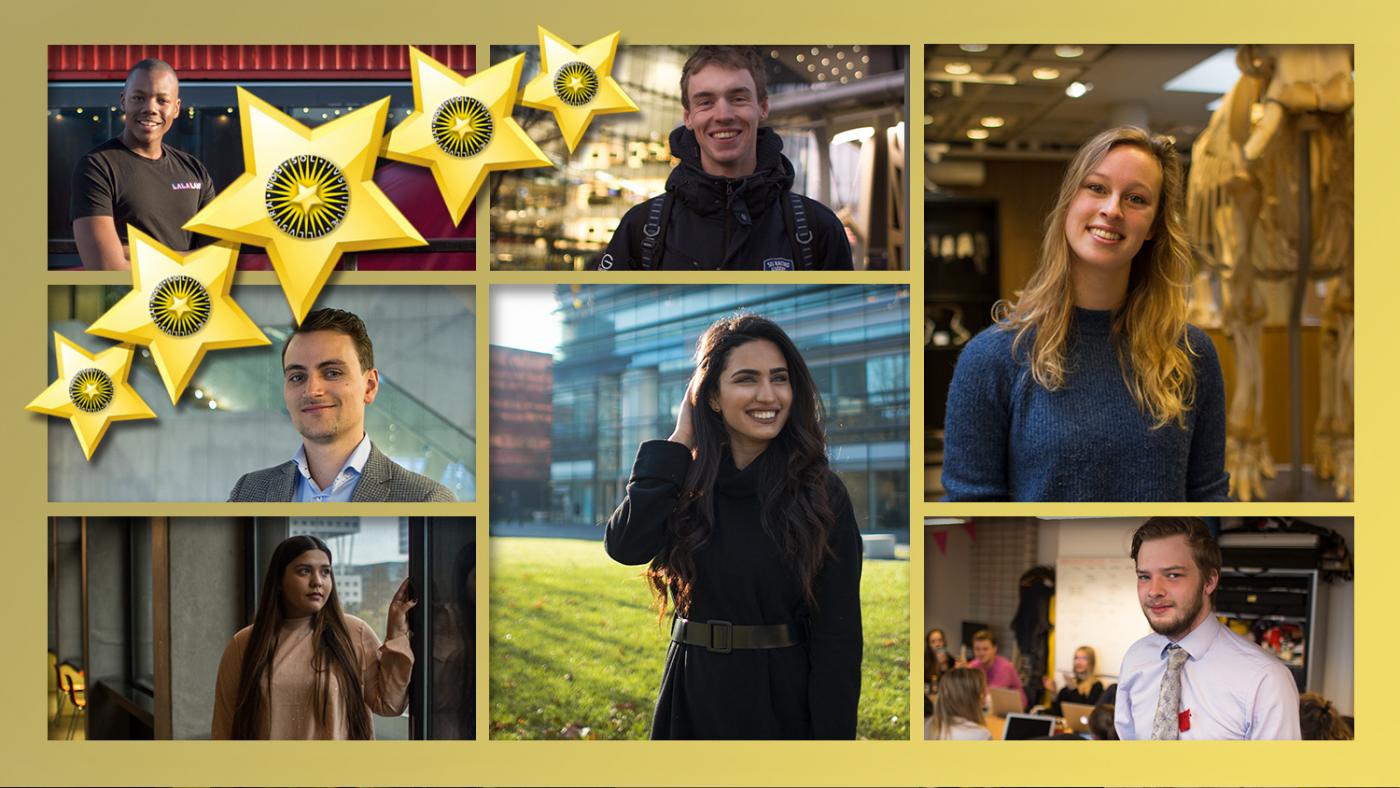
‘I want to take all the opportunities I get’
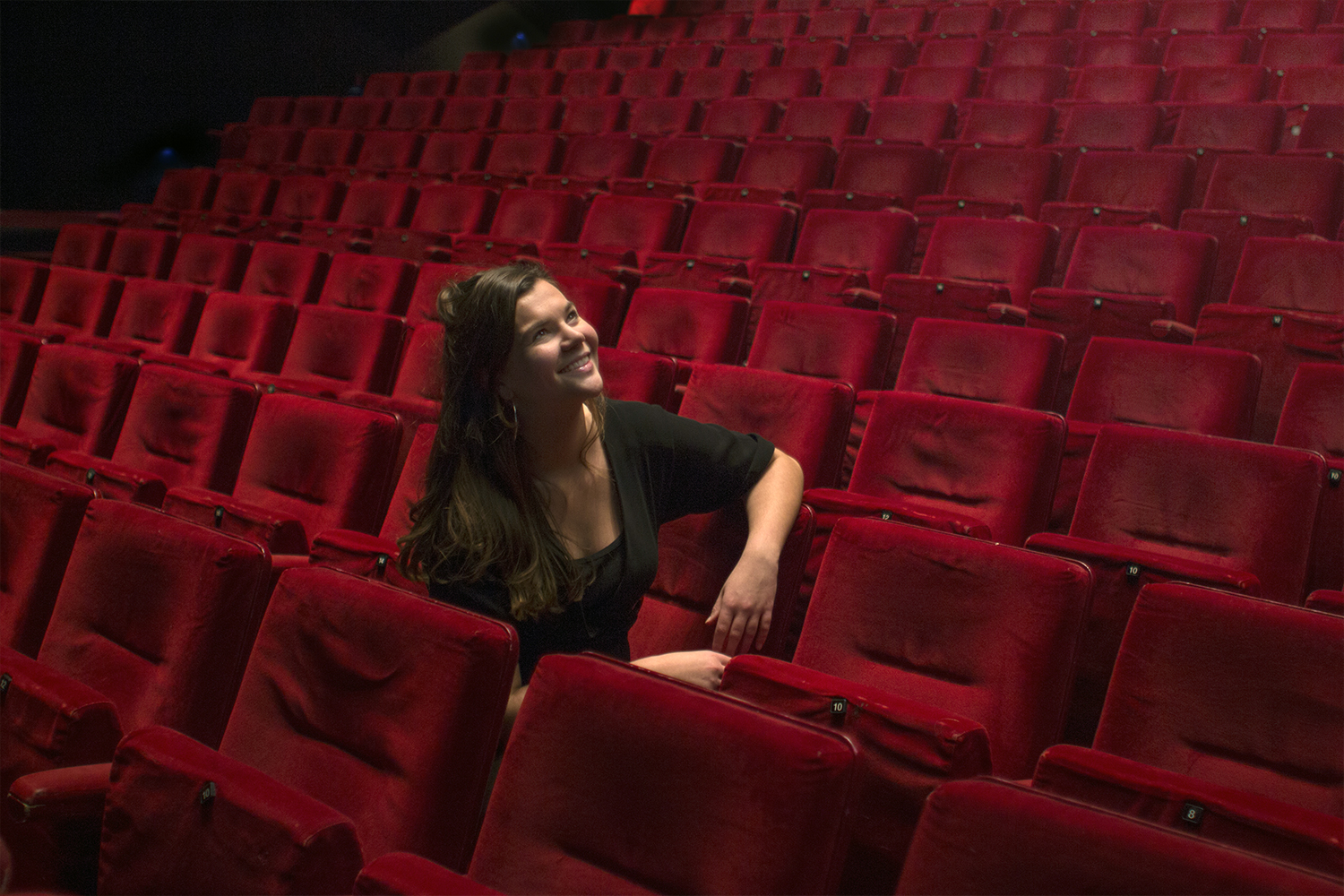
Last year, Fleur Huijs (20) won the title of Best SummerEntrepreneur of 2018, with her company Fleur Presents. She found an untapped market, and decided to give presentation training sessions to pupils and students. She put her studies of French language and culture on hold to be able to spend more time on her company, as well as on her other company FRGRND, in which she aims to connect Generation Z youth and companies.
Along with other talented women, Fleur was invited to the popular talk show De Wereld Draait Door. There, she said she wants to become the first female prime minister of the Netherlands, and explained how she’d managed to schedule a meeting with Mark Rutte. At the moment, she’s mostly focused on her companies. Whether she ever wants to go back to college? “That’s always an option, but these opportunities are never going to come back.”
Inspiration: “I get my inspiration from a lot of things: great conversations, or when someone comes to me after a lecture.”
Pitfall: “I always want to do too much, too fast. I like a lot of things, and say yes too quickly, which sometimes leads to meetings overlapping.”
Procrastination: “Web WhatsApp was the biggest evil during my lectures, as was Instagram. I’ll only start to procrastinate when something’s not interesting enough.”
Ambition: “I want my companies to become big, perhaps even international. I’m hugely fascinated with New York, so I’d love to give a lecture there.”
‘There’s an information gap, and I want to bridge it’
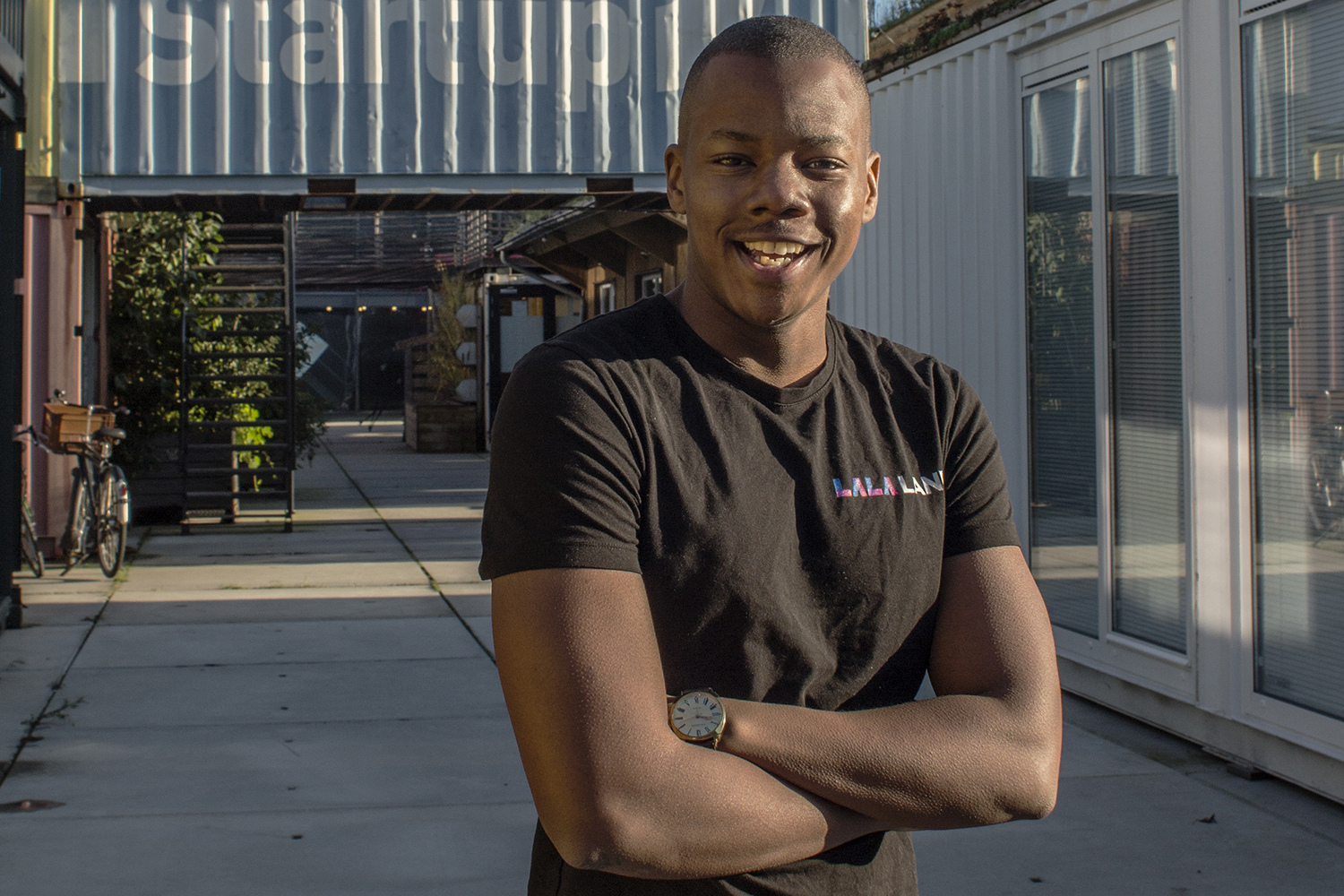
Michael Musandu (23) is a science communicator pur sang. This year, he won the Utrecht Breaking Science competition with a presentation about self-learning computer networks. If knowledge is power, spreading knowledge is distributing power, according to the Zimbabwean Master’s Student of Artificial Intelligence. But he also simply feels good when he’s got to convince an audience. It’s almost an art form, he feels.
With his start-up Lalaland, Michael uses his own research on machine learning to, for example, bring about a revolutionary change to the websites of fashion sellers. Away with the perfect models. Visitors will soon be able to apply filters that make the model on the photos look more like themselves – in size, but also in skin colour, for example. In the future, you’ll probably just upload your own photo, and you’ll see exactly what the clothes will look like on you.
Before the summer, Michael did a UtrechtInc training programme to help his company grow. Well-known lingerie web shop Sapph has since started using his software. “If you want to know what the future looks like, you’d best create it yourself,” is his motto.
Inspiration: “My future self. I decide where I want to be in five years’ time, with my company, but also in my personal life. That’s where I want to go.”
Pitfall: “It’s easy to get me enthusiastic about something. That means I’ll sometimes lose track of what’s important. But I’m making that mistake less often already.”
Procrastination: “When I’ve got a bad work in studies or work, I’ll sign up for a pitch competition. It might sound weird, but it’s so relaxing to me to explain something to people or convince them of something. Being on stage brings me to life.”
Ambition: “That people will really upload a photo of themselves and then see it on the website, instead of a Brad Pitt lookalike. That’s my goal with Lalaland, also from the viewpoint of inclusivity and diversity.”
‘We need to focus more sharply on the experiences of anorexia patients’
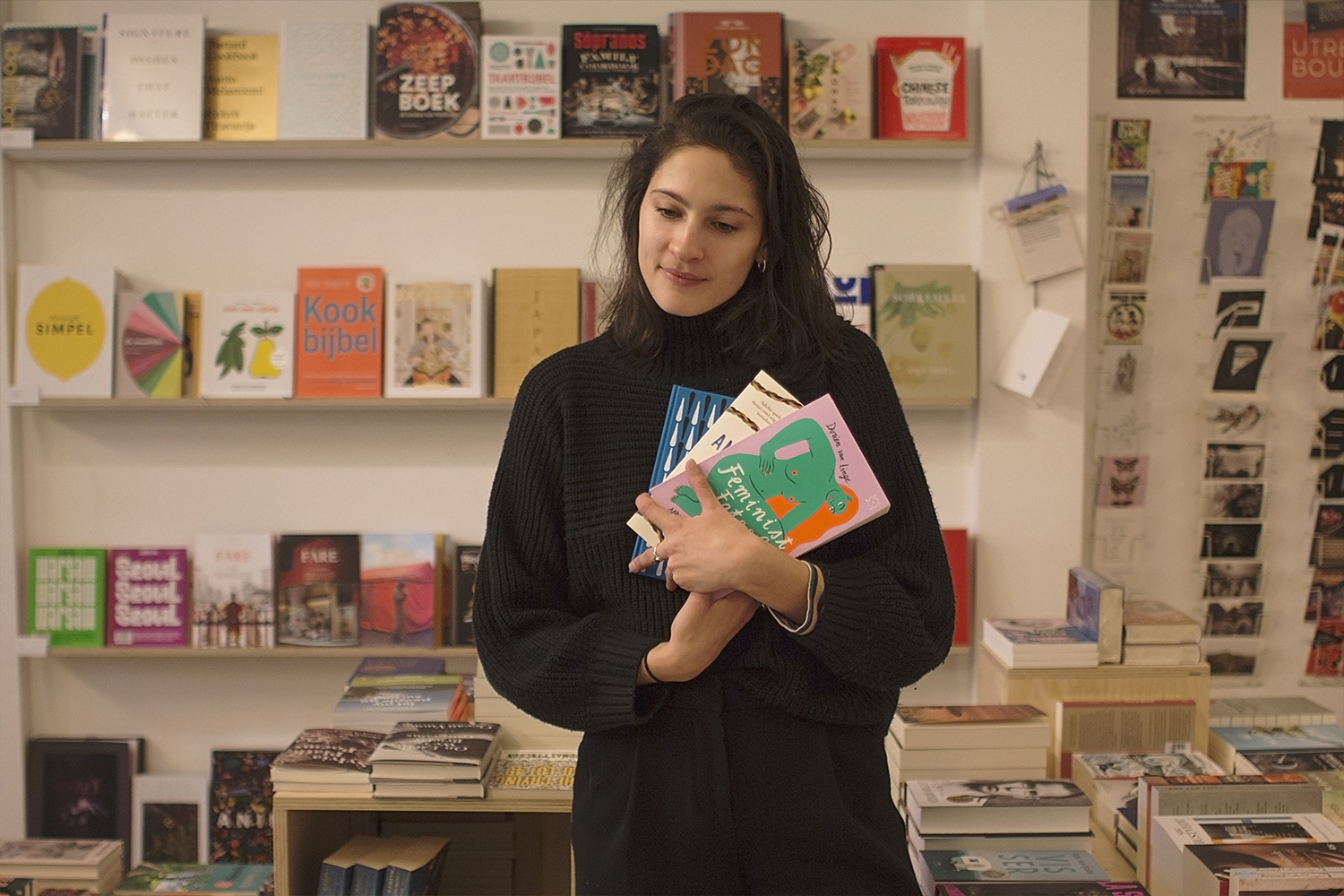
During the ceremonial start of the academic year, Laureanne Willems (25) received the award for the best Master’s thesis. An extraordinary feat for a number of reasons. During her studies, Laureanne underwent treatment for anorexia. During her studies, she wrote about her illness several times. For a course in Creative Writing during her Bachelor’s in English, she created an autobiographic story about how people view anorexia patients.
For her thesis for the Master’s in Comparative Literary Studies, she compared three autobiographical works by women with anorexia. “Their stories give different perspectives from those of scientists and aid workers. It bothers me that people with anorexia are often stigmatised and that people see it as one single pathology. Although the symptoms may be the same, each patient experiences it differently. These women show how important it is to share a life experience with an illness like that, and to take it seriously.”
For Laureanna, that’s the power of the study – that you can also expand it to include the way anorexia is portrayed in films, fine art, or literature. And you could study other illnesses in the same way - depression, for instance. She’d love to continue her research, with an NWO grant, or abroad, for instance. She’s currently teaching academic skills at the University of Amsterdam.
Inspiration: “Activists who fight for a more inclusive world. I’m thinking of people like Xandra Koster, who’s the project leader of the UN treaty on disability, and Clarice Gargard, the Dutch women’s representative for the UN general assemblies in 2019.”
Pitfall: “I’m interested in too many things. Because of that, I often start with a far too broad starting point, and that doesn’t work.”
Procrastination: “When I’m indoors for too long, I get restless, and I’ll go out for a walk.”
Ambition: “I’d love to use my research to make clear that life experiences deserve a more central place in the knowledge production about illnesses like anorexia.”
‘As a council member, I balanced between politician and activist’
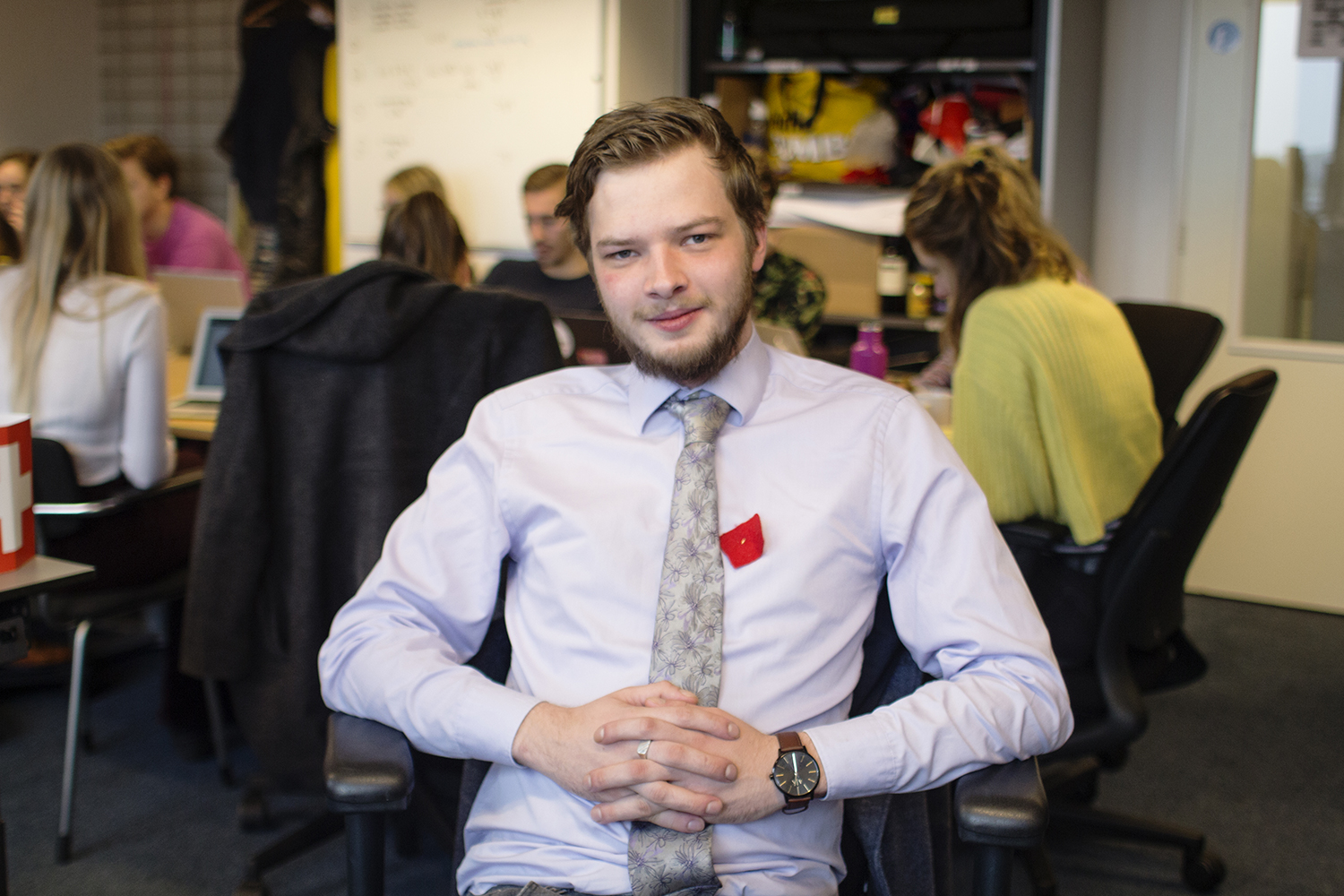
This past year, history student Floris Boudens (23) received the award for Co-determination member of the year. “He’s put co-determination on the map,” the motivation read. As a student member of the University council, he wanted to ‘trigger’ things. And that’s needed sometimes. Look, for instance, at the decision of the university board to sell the University College campus. “Perhaps you can do that based on a financial calculation, but then you’re ignoring the feelings of students living in that historical environment.”
Next to his work as a council member, Floris was also a member of protest group WOinAction. He says the council is a political game, in which the council members negotiate with the board too much. “I was in a quandary, sometimes feeling like a protester in the wrong place.” As protester for WOinAction, he worked on the contents more, he felt. That’s where he heard the actual complaints.
Floris made the national media with his objections to the high travel costs of UU president Anton Pijpers. It even led to questions in Parliament, and to a discussion within the university, which ultimately led to abolishing the official car.
For the future, he has the ambition to become a science journalist. “That way, you have more freedom than when you’re in a political party. I’ve seen it happen to GroenLinks congressman Zihni Özdil, with whom I worked for a short period. A few weeks later, he had to leave his party because he had an opinion of his own about the higher education loan system.”
Read DUB's interview with Floris Boudens here (in Dutch, ed.)
Inspiration: “Historians have a gift of holding up a mirror of the past and improving society by doing so. My teacher Pieter Huistra, whose honours programme I took, showed me the dark side of scientific corporations, for instance. But I’m also thinking of historians like Zihni Özdil of GroenLinks, and Rens Bod of WOinAction.”
Pitfall: “When something’s important to me, I lose myself in it. You get so involved that it’s hard to let go of it, and that can lead to stress and overexertion.”
Procrastination: “I watch comedies. I’ll watch an episode of South Park, or a George Carlin show. Comedy is a good way to make light of societal misery.”
Ambition: “I would love to help ensure the university’s democracy is strengthened, and that students truly have a voice at university.”
‘My sport gives me goose bumps moments I couldn’t experience in any other way’
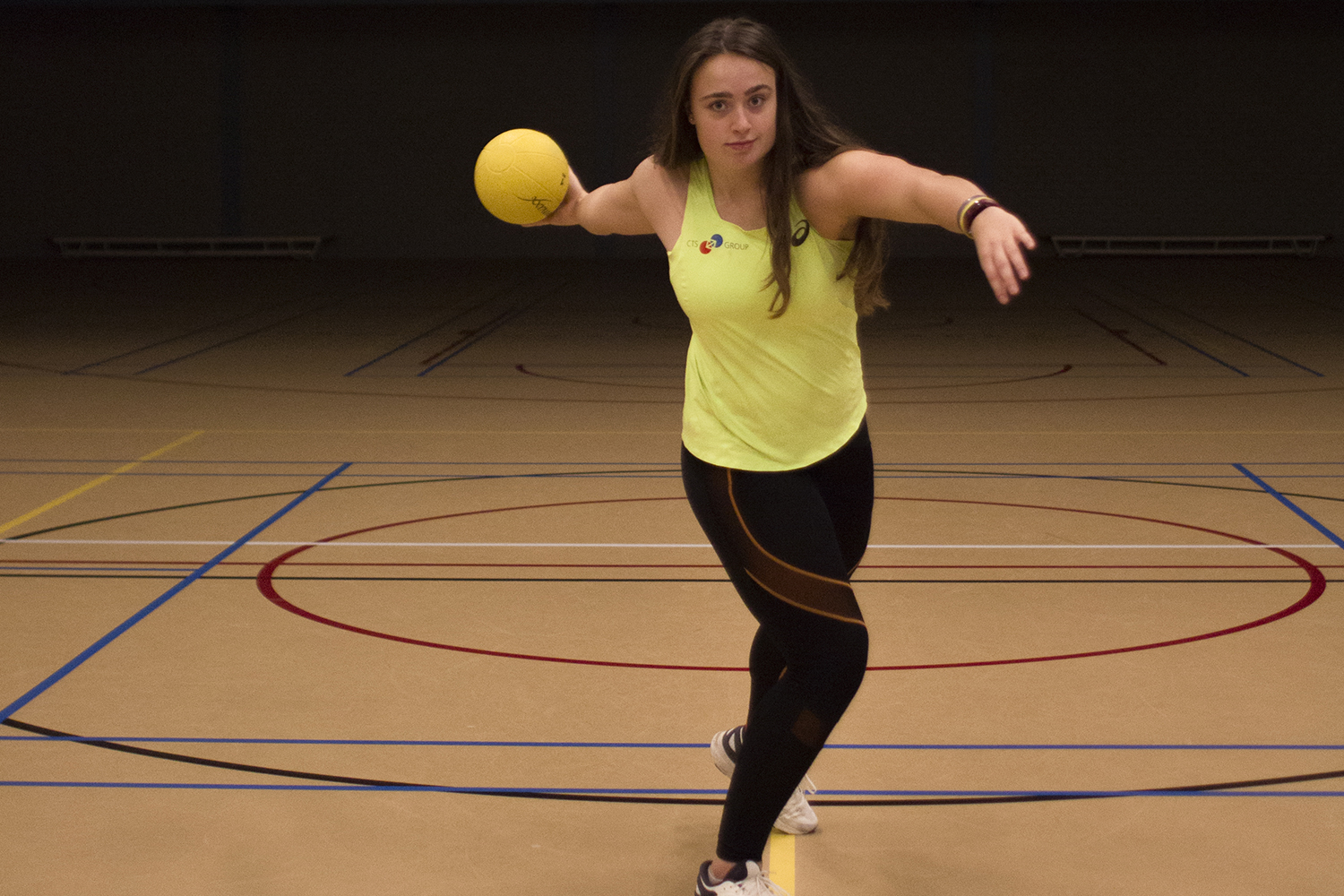
Jorinde van Klinken (19) is often an early bird. At the World Athletics Championships in Doha, she was the youngest contestant at the discus. ‘Klinkie’, as she’s called in the world of athletics, would also love to go to Tokyo this summer and participate in the Olympics. She’s aiming for a place in discus and shot-put. This year, she’s the best athlete under the age of 20 in both these sports.
She’s also fast in her studies. In secondary school, Jorinde skipped a year, and she’s hoping to finish her Bachelor’s of Liberal Arts and Sciences this spring, in the ‘normal’ three-year period; thankfully, studying comes easy to her. Plus, a lucrative adventure at American university beckons…
In the next few years, she wants to work on her power and technique in the United States. In her discipline, women aren’t usually at the top of their game until they’re around thirty. Jorinde is looking forward to it. She shows an Instagram video of her joy after qualifying for the World Championships. “That satisfaction after pushing your own boundaries like that, is something I only find in sports.”
Inspiration: “I mostly find inspiration in myself. I look up to everyone who reaches a goal after a lot of hard work.”
Pitfall: “The combination of sports and studying is tough. It’s hard to find balance. Sometimes, I focus too much on the one thing, which is then at the expense of the other.”
Procrastination: “I love cooking. For my sport, I have to eat a lot to keep up my weight, so it has to be tasty, too. I start by looking up recipes, and can spend hours in the kitchen.”
Ambition: “My biggest goal is winning medals at the Olympics for discus and shot-put. No one’s ever done that before.”
‘I analyse why machines make certain decisions’
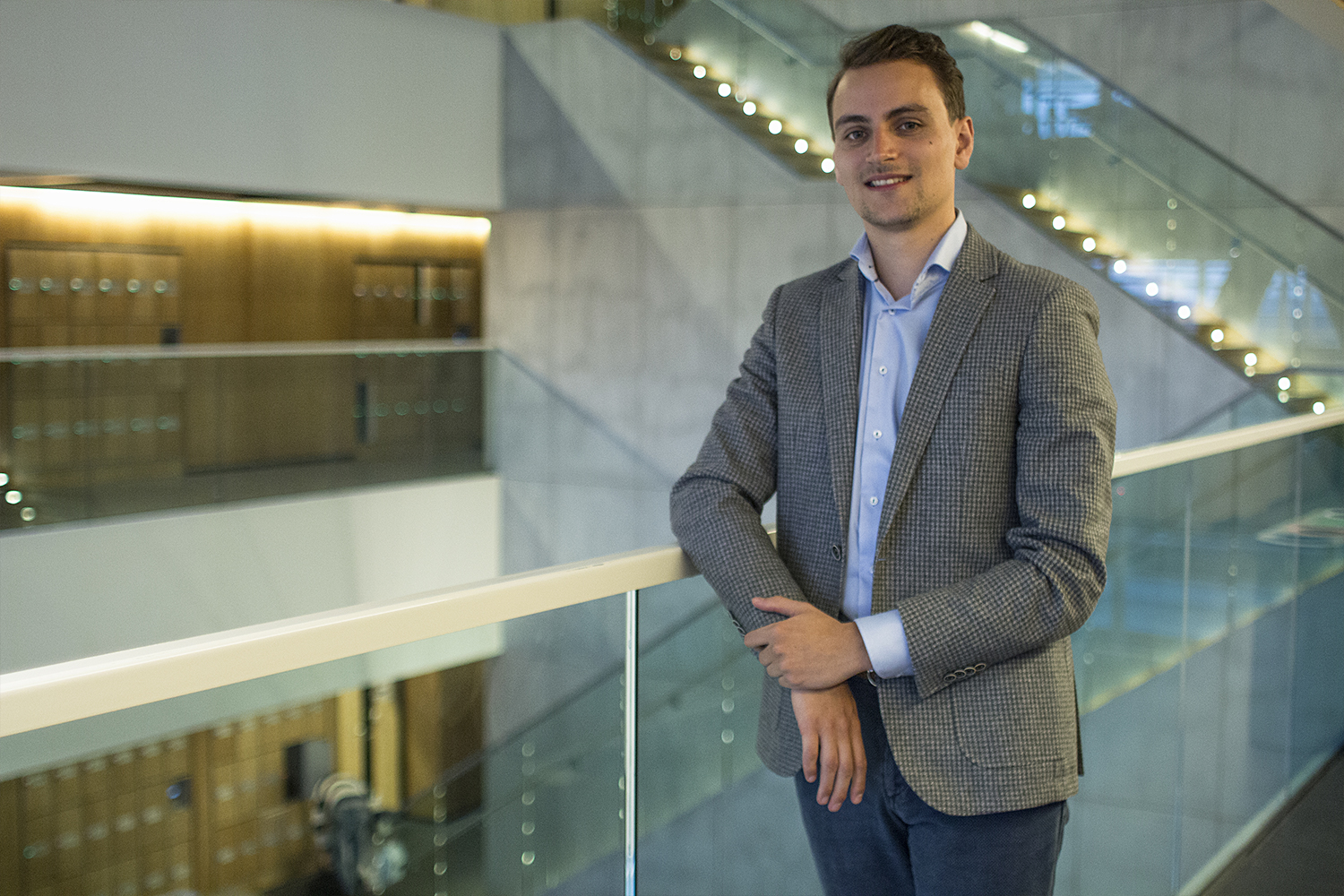
After graduating from the Master’s in Business Informatics, Marcel Robeer (25) had his pick of numerous positions for a PhD track. He gained interest with his Master’s thesis Contrastive Explanation for Machine Learning, with which he won a thesis award at the faculty of Science, and he was nominated for the thesis award of Utrecht University.
Marcel is working in a new research discipline in IT, in which it’s not so much about the computer you’re programming, but more about a machine you give a lot of data, and then let it decide what it needs to do. Take a self-driving vehicle, for instance: it receives a huge amount of data, and based on that data, it analyses what it has to do.
Marcel chose to do a PhD for the UU at the National Police Lab. On the one hand, he focuses on research, and on the other, he’s in direct contact with reality. At the National Police Lab, the principle of machine learning can be used in many things: from finding criminals to improving the process of filing charges. “We’re not just looking at the possibilities, but also at the ethical and legal sides. What’s allowed and what isn’t?” Marcel keeps the option of continuing in science open, but it’s not a must to him.
Inspiration: “People who are able to explain highly complicated matters in a clear, transparent way.”
Pitfall: “When I think something’s interesting, I completely lose myself in it.”
Procrastination: “I want to do something different at times. I’ll start learning a language, or I’ll watch a TV show. My favourite series are science fiction-related, like Black Mirror.”
Ambition: “I’d most love to launch an innovative product of my own, through my own company.”
'I can’t change the past anymore, but I can change the future'
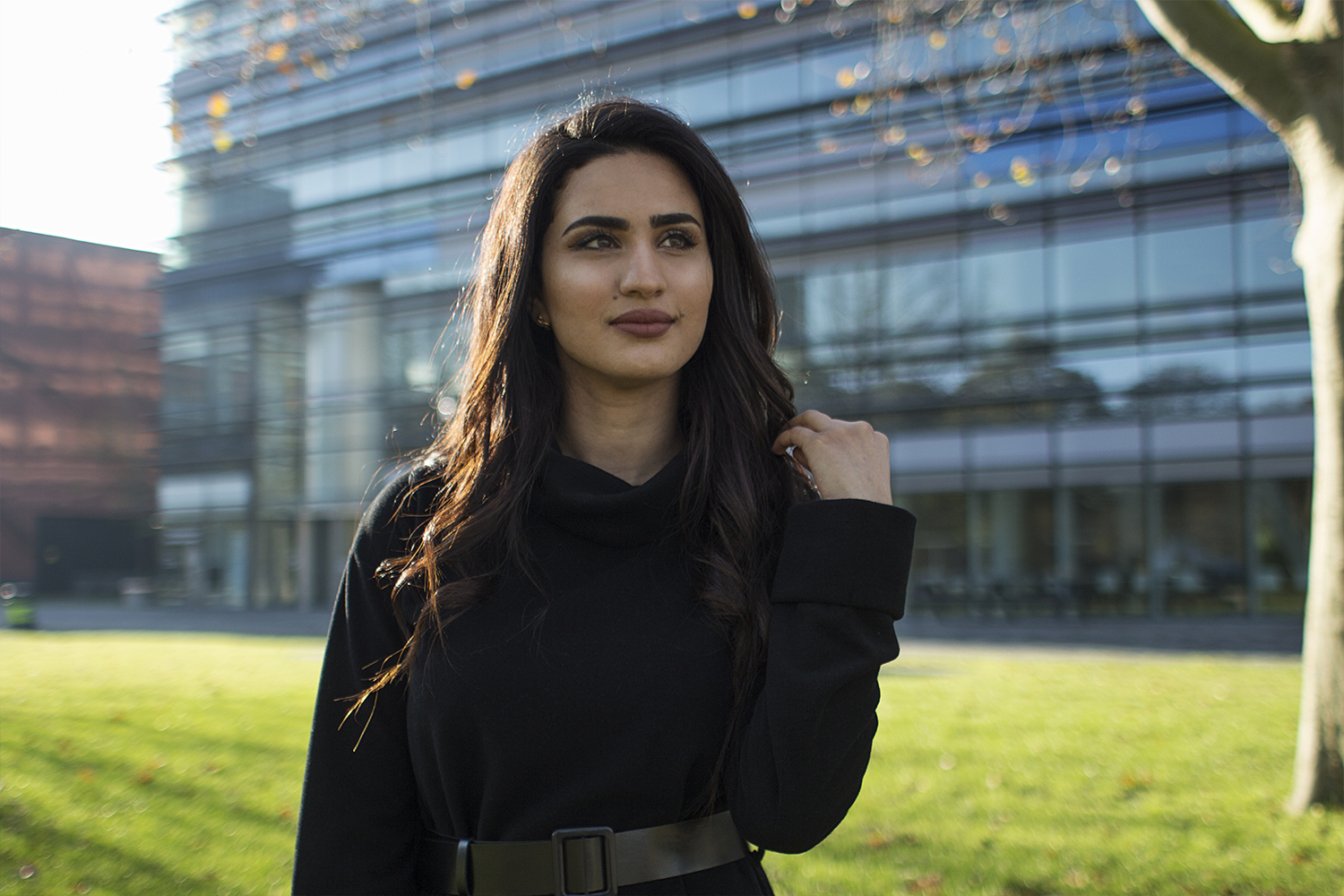
Six years ago, Dalal Ghanim (23) fled Iraq and came to the Netherlands. After a year of Dutch language classes, she was advised to go to the mbo (vocational school) and work her way up to university. That would ‘only’ take her six years. She decided to do things differently: she got her vwo diploma in one year, travelled back and forth between Almere and Groningen for a year to get her Propaedeutic diploma at university, and is now a third-year pharmacy student in Utrecht.
It’s a typical example of her stubbornness. Still, it’s not the only thing that motivates her to keep going on days she’d most want to give up. “I want to do something meaningful for people, and fight against injustice. In difficult moments, I remind myself it’s not possible to do that without a diploma.”
But she’s not doing nothing before graduating. She tutors math and physics, works in a pharmacy, advises refugees on how to get to university without taking the mbo route, and regularly calls attention to the Yazidi cause (the minority group she belongs to) among politicians and others. “You shouldn’t wait until someone else starts doing things. The world won’t get better by waiting.”
Read DUB’s interview with Dalal here
Inspiration: The Yazidi women who take control of their lives again after being imprisoned by ISIS. They’ve been through so many horrible things, but are still deciding to do something good.
Pitfall: Not taking enough time for myself. My mother regularly comes into my room at 3 am, closes my laptop, and says: ‘That’s enough’.
Procrastination: Only when I’m sick, I’ll watch YouTube videos in bed. I feel guilty when I’ve got spare time and I’m not using it to help others.
Ambition: Helping people who need it. Here, in Iraq, or elsewhere.
'I want to contribute to a future in which gender doesn’t play a role in career choices'
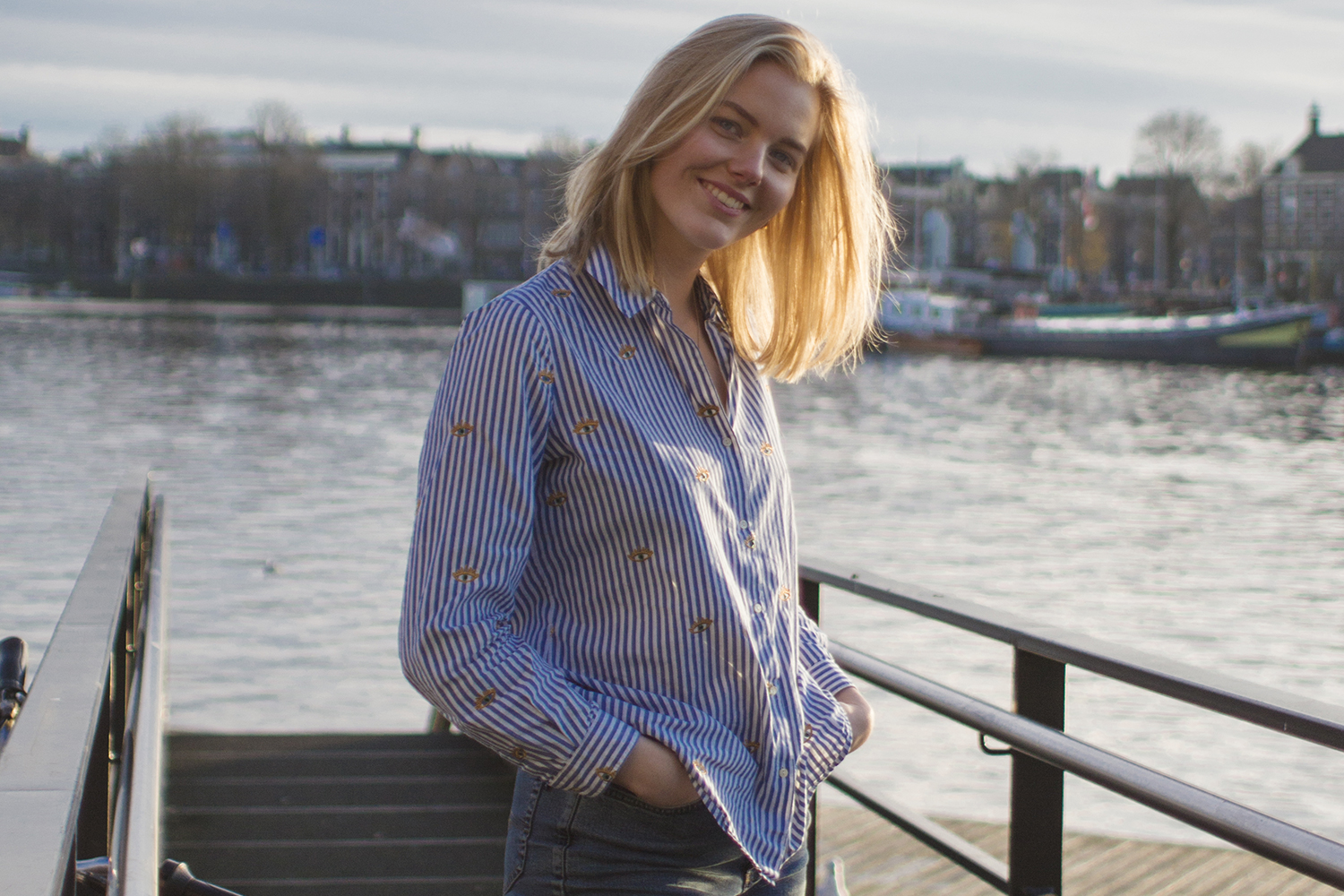
Annemieke van Straalen (20) does her studies in Communication and Information Sciences ‘on the side’. Her passion is with her board work for Feminer, a platform for career-oriented young women, which wants to contribute to a future in which gender doesn’t play a role in career choices and possibilities anymore.
Next to that, she fights for a sustainable world with her work for a green PR agency. On top of that, she’s got a busy ‘hobby’, which has become a major share of her income: her Instagram account lesparisiennesdumonde, which has nearly 600,000 followers. “My account works kind of like a magazine with ads. Companies pay me to post a certain photo on my account.”
This past year, she’s had to make a few difficult choices. A lack of time meant she had to withdraw from the fashion label Parisienne et alors, which designs sustainable clothing. The label is based in Paris, and she ran it with a few French women. She also quit her studies in Governance. “The study programme didn’t really turn out to be my thing, and I needed a new challenge. I started an internship at a PR agency, and there, I discovered that communication is more my thing, especially communication as an instrument for social change. The programme also connects better to my work for Feminer. As Head of Marketing & Communication, I lead the content team, with which we want to increase our impact.”
Inspiration: “I get inspiration from lots of women, but Speaker of the House Khadija Arib is an important role model. She came to the Netherlands at an early age, fought for emancipation of young Moroccan women, and made her own career in the meantime. That combination of working on your career and simultaneously having a positive influence on your environment is inspiring to me.”
Pitfall: “I’ve been a little too busy lately. I had to cancel meetings, and temporarily disappoint friends. But I’ve learned that my mental wellbeing is more important than pleasing others.”
Procrastination: “Procrastination, to me, is working on Feminer or my job. The moments I read a book or watch a TV show are necessary relax moments to recharge.”
Ambition: “I’m enthusiastic and ambitious, but not a long-term planner. I’ll see what comes my way, and choose the things that give me energy. I’ll let my gut feeling guide me.”
'I want to straighten up the underrepresentation of second-generation migrants in science'
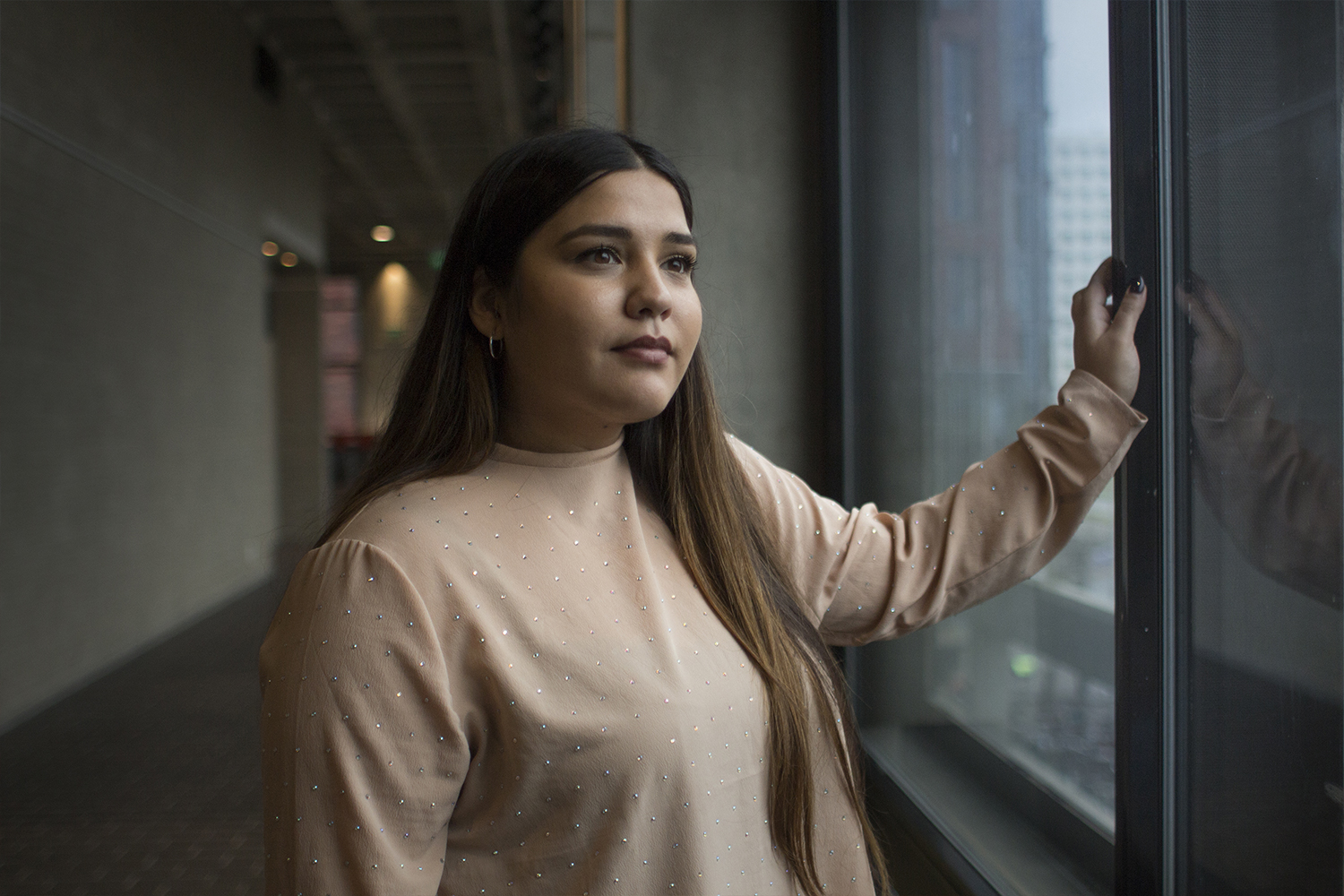
Everything Simone Zalla Aumaj (25) does focuses on the question of how she can do something meaningful for society. Especially for minority groups, or as she calls it: “people who don’t fit the standard”. Whether that’s second-generation migrants like herself, international students, or people who identify as neither male nor female.
The Master’s student of Gender studies does that as a research assistant of professors Sandra Ponzanesi (UU) and Halleh Ghorashi (VU University) and as a project manager at Work in Progress. That’s an organisation that wants to talk about diversity and inclusivity at the UU through workshops and art. Her ambition is at the intersection of diversity and science. Simone wants to become a professor, and thus become a role model for other underrepresented groups in science. She’s experienced how important examples like that are, especially because she herself thought for a long time that a career wasn’t a realistic option for a second-generation migrant like herself. Until she met a professor who proved otherwise.
She’s learned her urge to “give others what she missed out on” from the best: her parents, who thirty years ago were among the first Afghan refugees in the Netherlands, did the same. They gave advice to other Afghan refugees on how to settle here.
Read the DUB interview with Simone here.
Inspiration: “Halleh Ghorashi, professor of diversity and inclusivity at the VU University in Amsterdam. She’s the first professor in the Netherlands with a migrant background. Before I met her, I didn’t feel like I could become a professor.”
Pitfall: “I have to watch out that I don’t stop taking care of myself. I’ll be going at top speed, but I won’t make it if I don’t sleep enough, work out enough, and eat healthy. I’ll also need a moment now and then to reflect on what I’m doing.”
Procrastination: “Because I’ve got three jobs next to my studies, I’ve learned to live a structured life. But I’ll watch Netflix sometimes too.”
Ambition: “I want to become a professor, and build bridges between societal issues and science that way.”
'It’s not about time, it’s about having good energy'
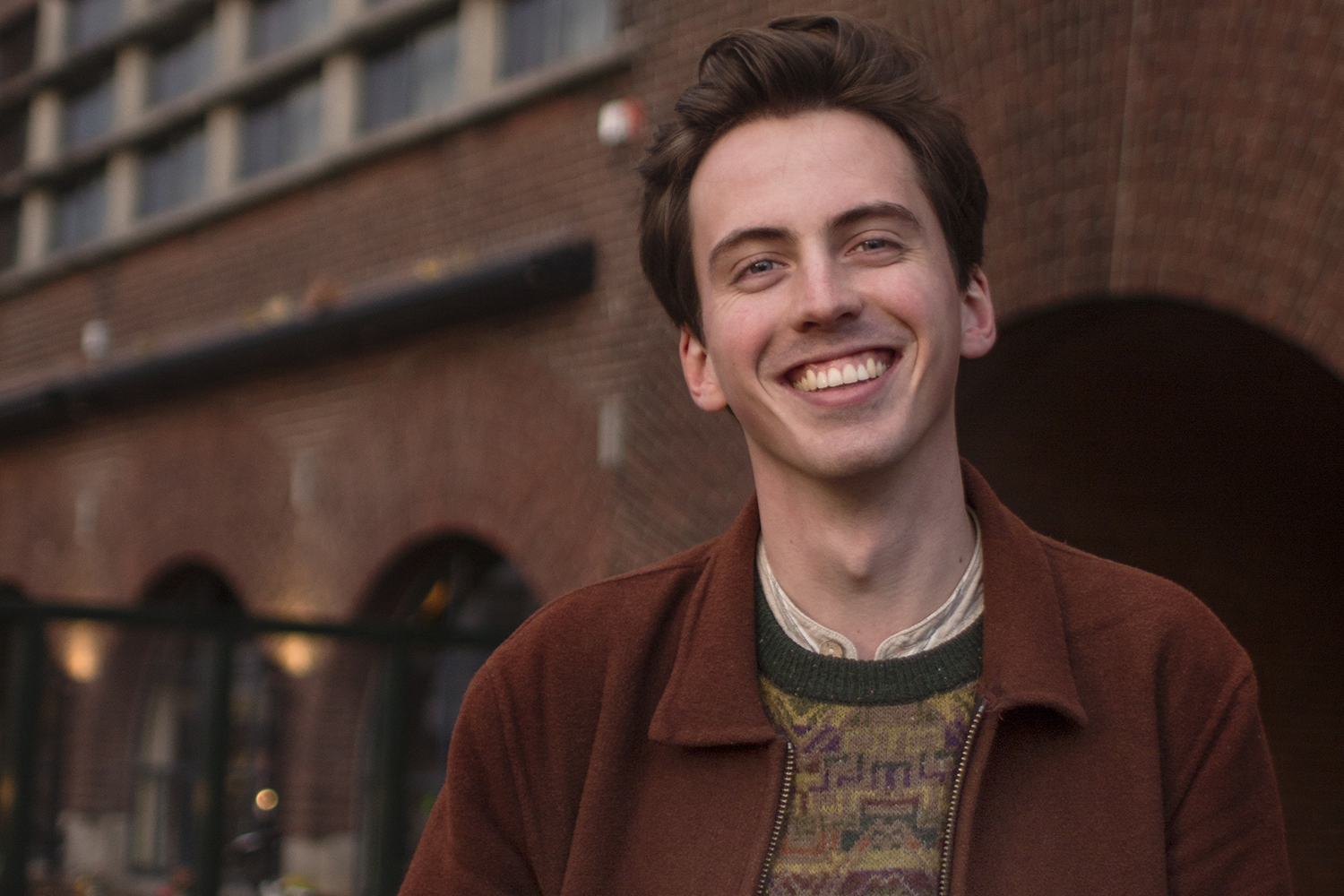
Jesse Wijlhuizen (22) was an entrepreneur even as a child. In grade 4, he organised a clean-up day in his hometown of Nuenen. He continues this active attitude this year as president of the student members of the University Council. He’s also active in the committee of the CNV Youth union which focuses on the connection between education and labour market.
He took two Bachelor’s programmes: Philosophy and Sociology. The latter gave him an Honours degree. He’s also done a high number of other activities. He was student-assistant, chairman of study association Usocia of Sociology, and chairman of subsidy provider of the university foundation STUF.
If you think that’s quite a lot: he’s also done six months of full-time research at Netherlands Statistics on societal pessimism. There, he discovered first-generation migrants are the most optimistic thinkers when it comes to the Dutch society. “If you dive into that topic, you find all sorts of interesting things. Such as a relation between the number of bankruptcies and societal pessimism.”
Inspiration: “As a child, I was in awe of Gandhi and Martin Luther King. Now, I can’t even list what inspires me. There are so many unexpected moments that can inspire me.”
Pitfall: “Brainstorming enthusiastically and then experiencing an overflow of ideas. I need others to get me back on track.”
Procrastination: “Instagram really is too much fun. I’ll also sometimes work on a project when I should be working on another project.”
Ambition: “That’s tricky, I never plan for the long term. But perhaps my ambition is in music; I’ve played piano for years. I soon hope to hide out in a music studio with a few friends for a weekend and mess around a bit.”
‘Animals can’t fight for their own rights’
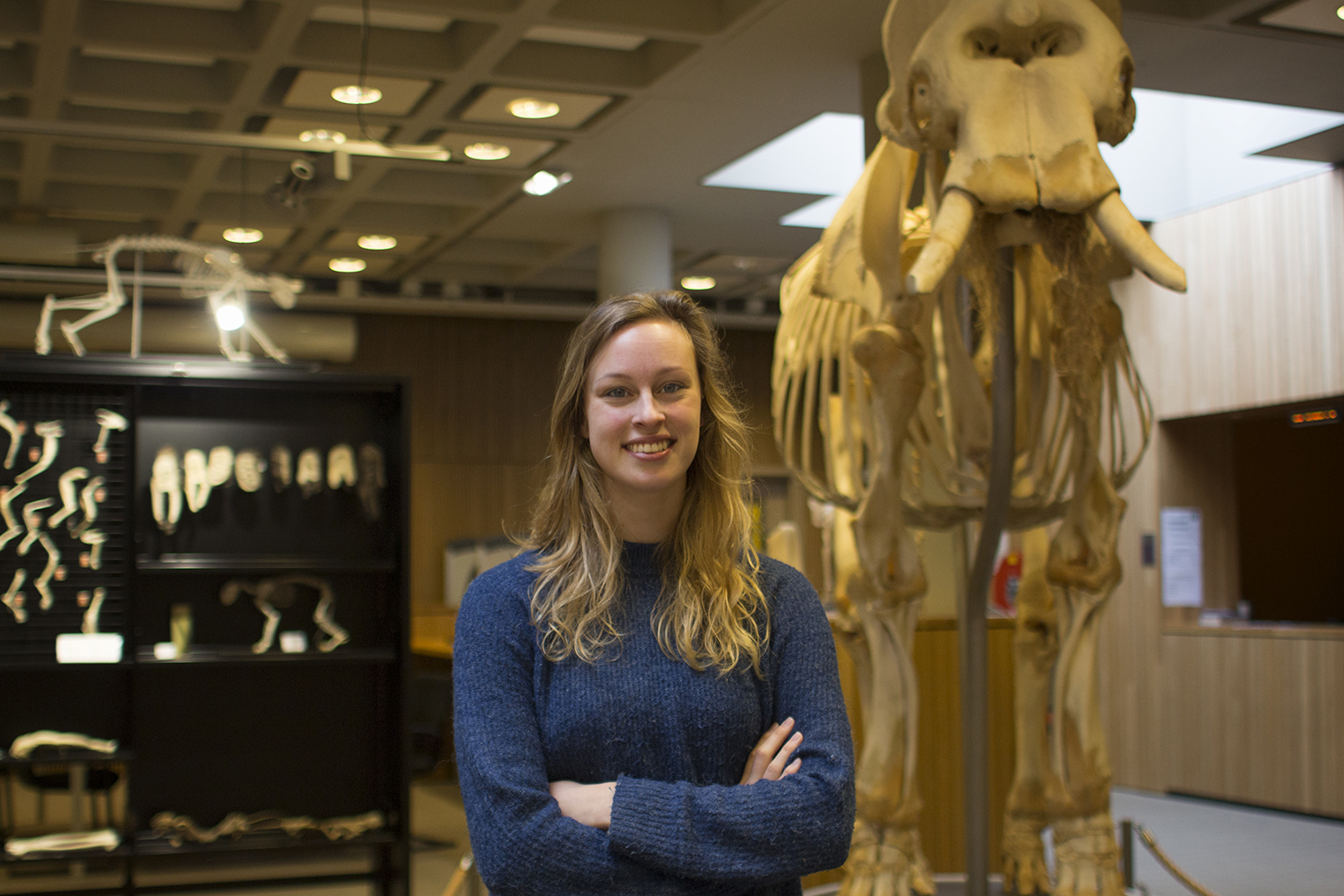
Animal welfare is an important motivator in the life of Jolanda Nieuwland (22). Her love for pets started when she got a hamster at a very young age. No wonder she wanted to study veterinary medicine. After a year of studying biology in Nijmegen, she obtained a spot in the study programme of Veterinary Medicine at the UU.
In the first year, she became active in the foundation Veterinary Medicine in Development Cooperation. That foundation has since merged with Veterinarians Without Borders. Now, Jolanda is the president of the Dutch student branch of that organisation. Very recently, DUB published an article in which she wrote about their Run4Rabies event for battling rabies. She herself visited Madagascar, where she helped veterinarians with vaccinating and neutering dogs and cats.
As president, Jolanda has a role that is mostly coordinating. She’s in touch with other branches of Veterinarians Without Borders both in the Netherlands and other countries. She also launches fundraising events, for instance the ‘Give a Goat’ campaign. For 50 euros, people can buy a goat for a family in Malawi. She’s also managed to raise money through the Wild Geese foundation, for education for animal welfare officers. “Students who go to Africa learn so much, and we support local farmers in treating their animals.”
Inspiration: “My love for animals. Whether it’s my hamster at home or the dog wagging its tail, they always know to encourage me.”
Pitfall: “I tend to take on too much at once, and that’s tricky if you’re kind of a perfectionist.”
Procrastination: “I procrastinate by meeting up with friends or watching series on Netflix, such as Avatar or Lucifer.”
Ambition: “I want to help animals who can’t fight for their own rights, both in the Netherlands and in developing countries.”
‘Israel is important to me’
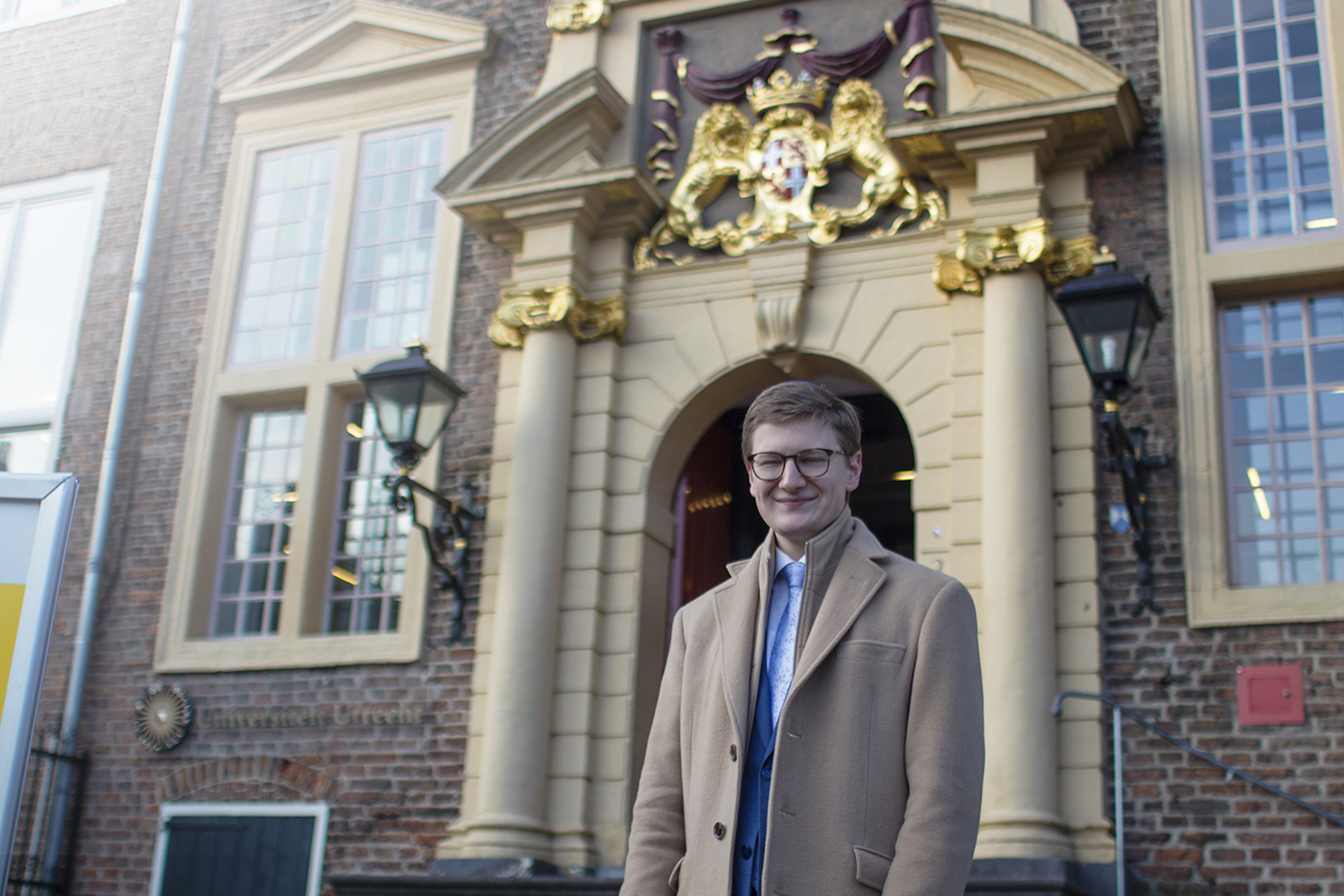
Hidde van Koningsveld (23) is a policy officer at the CIDI (Centre for Information and Documentation Israel). The law student converted to Judaism, and for a while, was president of the youth branch of the CIDI. He says it’s his passion to inform the greater public about Israel and Judaism, because there’s a lot of wrong and suggestive reporting about those topics. Critics say Hidde is a mouthpiece for Israel, who casts opponents in a negative light.
Last year, Hidde and his colleagues organised the protest #keppeltjeop (#wearyouryarmulke) on the Plein square in The Hague, after a German anti-Semitism coordinator had pointed out to Jews that wearing your yarmulke can be dangerous in certain places. The protest received a lot of attention from the media. That world isn’t entirely new to him: as a secondary school pupil, he’d once been a guest at Humberto Tan’s talk show. At the time, he’d declared his candidacy for the position of mayor of Utrecht, to draw attention to the process of appointing a mayor. “I like provoking people a little bit, doing crazy things. But I do want to make a point.”
Read DUB's interview with Hidde here.
Ambition: “I want to make the special position Israel has, and the threats the country has to deal with, clear to a broad audience. Hopefully, this will lead to some more understanding.”
Pitfall: “I’m easily distracted, for instance by social media.”
Procrastination: “I procrastinate on Twitter, mostly. The worst part is that I can use the excuse of needing to use Twitter for my work.”
Inspiration: “I really need to visit Israel four or five times a year. When I’m there, I’m reminded of why I’m doing all this. I couldn’t function without those trips.”
‘I want to turn knowledge into action’
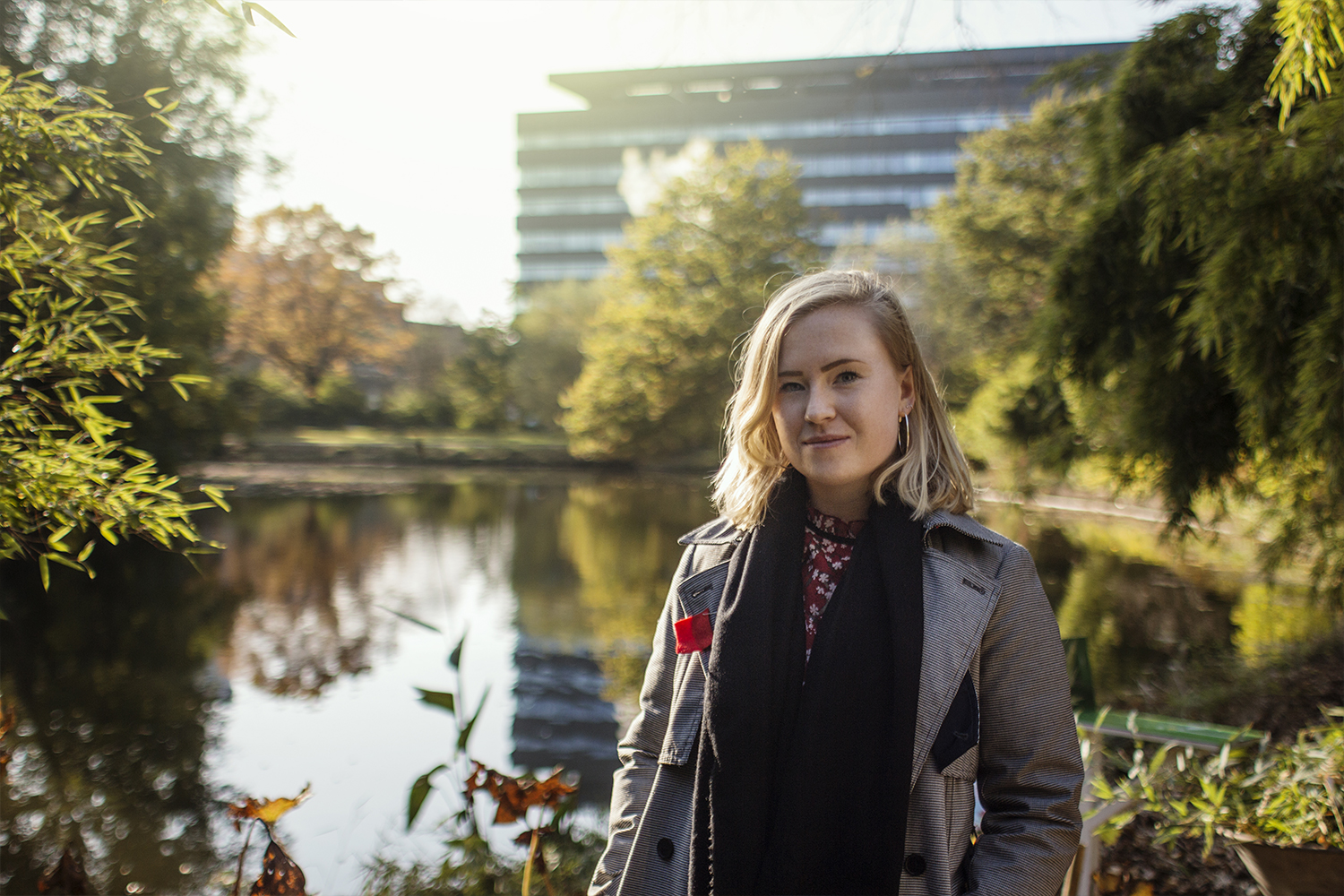
She refused to get on a plane for a mandatory study trip when an excursion to Romania was part of the programme. Marte Vroom (24) hasn’t travelled by place since she first learned how taxing to the environment it is to fly. In fact: if there’s a demonstration for improving the environment, she’ll be there.
Marte isn’t taking the fastest route to a Bachelor’s degree. She switched from the Honours College at Windesheim to Educational Sciences in Utrecht. When her mother passed away in her second year, she took a break and travelled. By plane. Back in the Netherlands, she decided to study Social Geography & Planning. “I always thought geography was the most interesting course at school.”
During the Threatened Earth course, she heard how much damage flying does to the planet. “Had I known, I would’ve never gotten on that plane.” Now, she’s an honours student and student assistant to Marca Wolfensberger, director of the Social Geography honours college.
Aside from her fight for a more sustainable world, politics is her second love. She joined Dwars, the youth organisation of the GroenLinks party. She was a board member of the Utrecht department and president of a campaign team. Now, she’s a member of the committee that looks for candidates for board positions for Dwars. She was also elected to a position in the co-determination council of the faculty of Geosciences. She’s president of the student group.
Ambition: “It’s scary to say, but I want to do research and become a professor. Scary, because I know it’s harder for women to become professor, and because I’m a first-generation student. My parents didn’t go to college. The academic world is further away from us.”
Pitfall: “I have trouble saying no, because I’m genuinely enthusiastic about so many things. I’ve got a completely full calendar, and don’t have much time for my friends and myself.”
Procrastination: “I don’t really have time to procrastinate, but when I do, I read all news websites, political junkie that I am.”
Inspiration: “Jane Jacobs. She was, among other things, the journalist who studied how lively city neighbourhoods with shared functions are threatened by planners such as Le Corbusier and Howard. She was also an activist who fought against the construction of motorways through neighbourhoods. I want to do what she did: turn knowledge into action.”
‘I don’t want to feel like I’m being lived anymore’
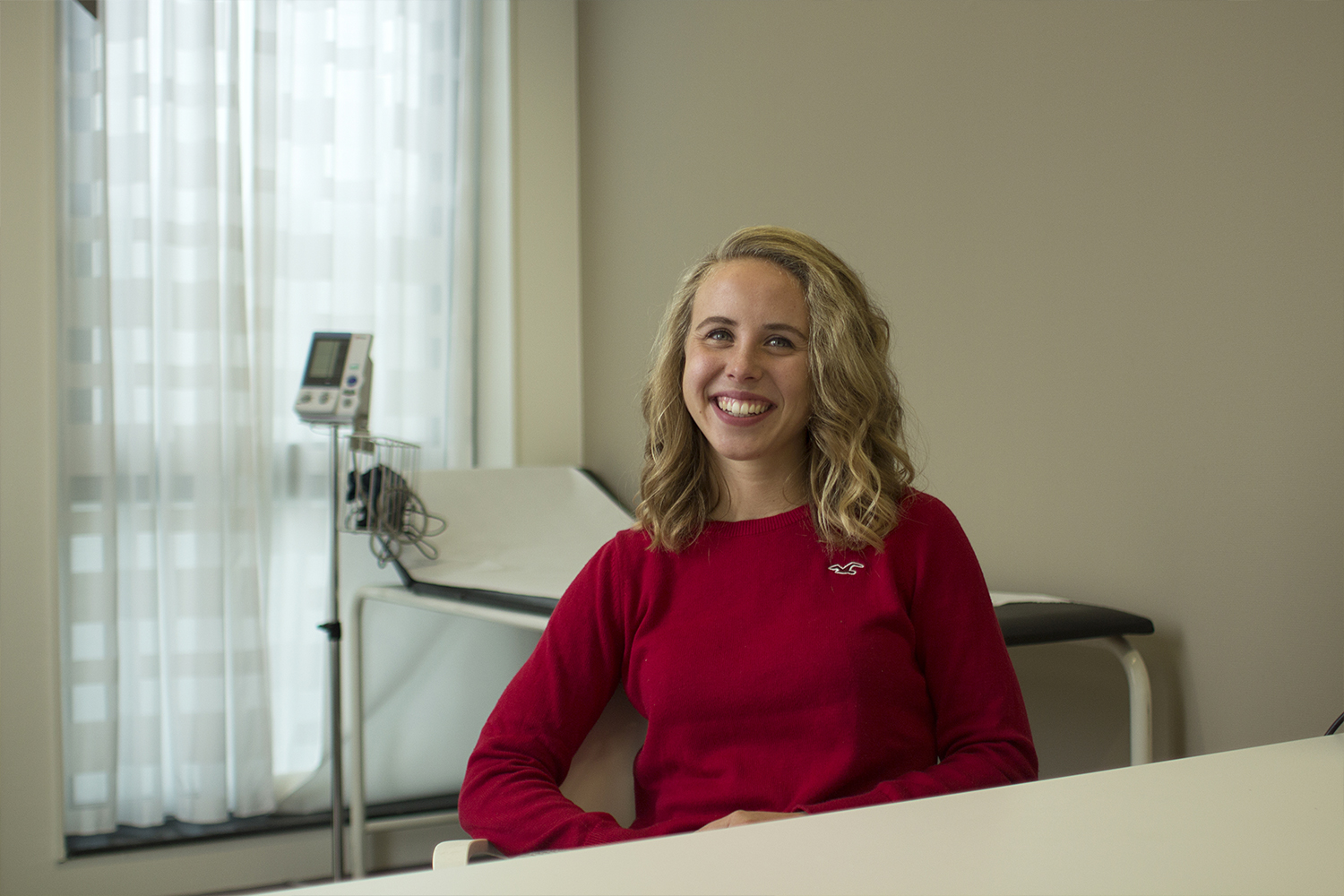
Eva van Gennep (26) studied medicine at Utrecht University and graduated cum laude this year. Despite having breast cancer, and had to go through surgery, radiation, and chemotherapy, she never quit her studies, although she did slow them down a little. She wasn’t able to do her residency, but after her diagnosis, she did work on her research internship part-time. She wanted to keep participating in ‘normal life’, instead of just being a sick patient in a hospital.
“I did have to adjust my goals,” she says about that time. “I had to lower my bars, or I wouldn’t have kept up.” After graduating, she quickly got a full-time job in an addiction clinic, and started working as a volunteer for the Power Days foundation, which focuses on young people who have or had cancer. “I have a different outlook on life because of what I went through. And I’ve noticed fellow cancer patients have the same thing.”
Read DUB's interview with Eva here.
Inspiration: “I’m inspired by contact with fellow patients. Because we’ve all had cancer, we’ve experienced at a young adult age what it’s like when everything that’s always been self-evident suddenly becomes uncertain.”
Pitfall: “Perfectionism, and trying to do too much. When I was sick, I was forced to take a step back. It helped to set small goals for myself.”
Procrastination: “Scrolling through Instagram, and watching series and films on Netflix.”
Ambition: “I don’t have a specific end goal in mind for my career as a doctor, actually. One thing I do know for certain is that I want to keep working with the Power Days foundation, to give other young adults who have or had cancer the same valuable experience.”
'I want to prove that you can combine professional cycling with studying'
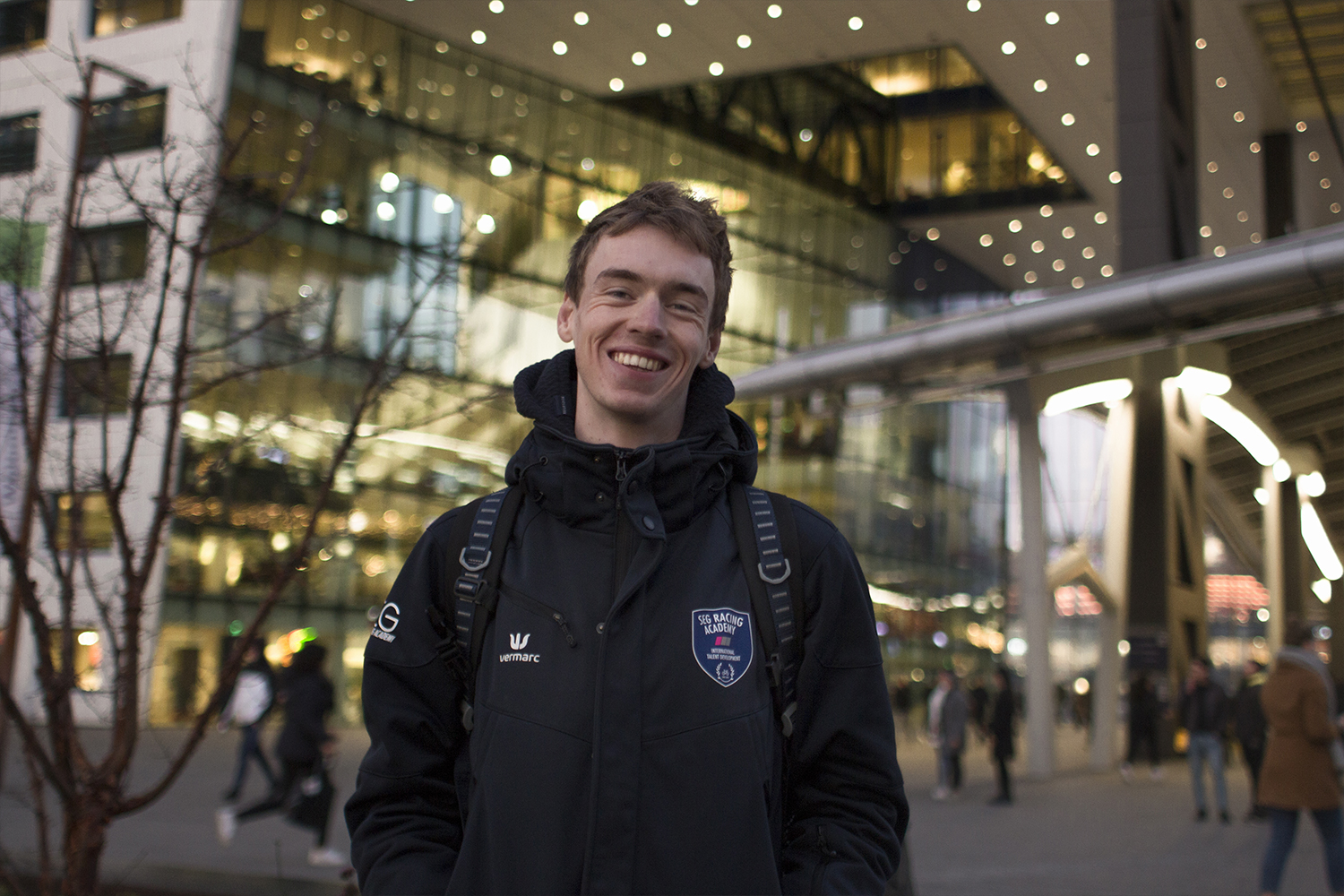
Thymen Arensman (20) signed a professional athletic contract with well-known cycling formation Sunweb. The history student hopes that starting next year, he’ll follow in the footsteps of Tom Dumoulin, who left the German team after many successful years. His excellent achievements in climbs for youths breed expectations, but Thymen has also already experienced adversity in numerous crashes.
As one of the few in the peloton, Thymen combines his sport with full-time (university) studies. And he’s determined to graduate from his Bachelor’s programme. Perhaps it’ll take him a little longer, but he enjoys studying. And he wants to have something to fall back on. He can imagine himself a teacher later in life, and sharing with his students his fascination with the ancient Greeks and Vikings.
But first, he’d like to participate in the Vuelta race next summer, which will start in Utrecht. “How awesome is that? To race through the streets of Utrecht with millions of people watching.”
Read DUB's interview with Thymen here.
Inspiration: “I mostly get my inspiration from the progression in my training sessions. That’s my motivator: creating the best version of myself. I want to keep working hard for that.”
Pitfall: “Being too enthusiastic during training sessions sometimes, and trying to take on too much. The risk is becoming overexerted.”
Procrastination: “That’s easy for me: cycling! But aside from all the training, I’m also online a lot, on my PlayStation 4. Or I’ll visit a beautiful town with my girlfriend, or sit on a café terrace together.”
Ambition: “I’d love to be in the global top of cycling within a few years.”